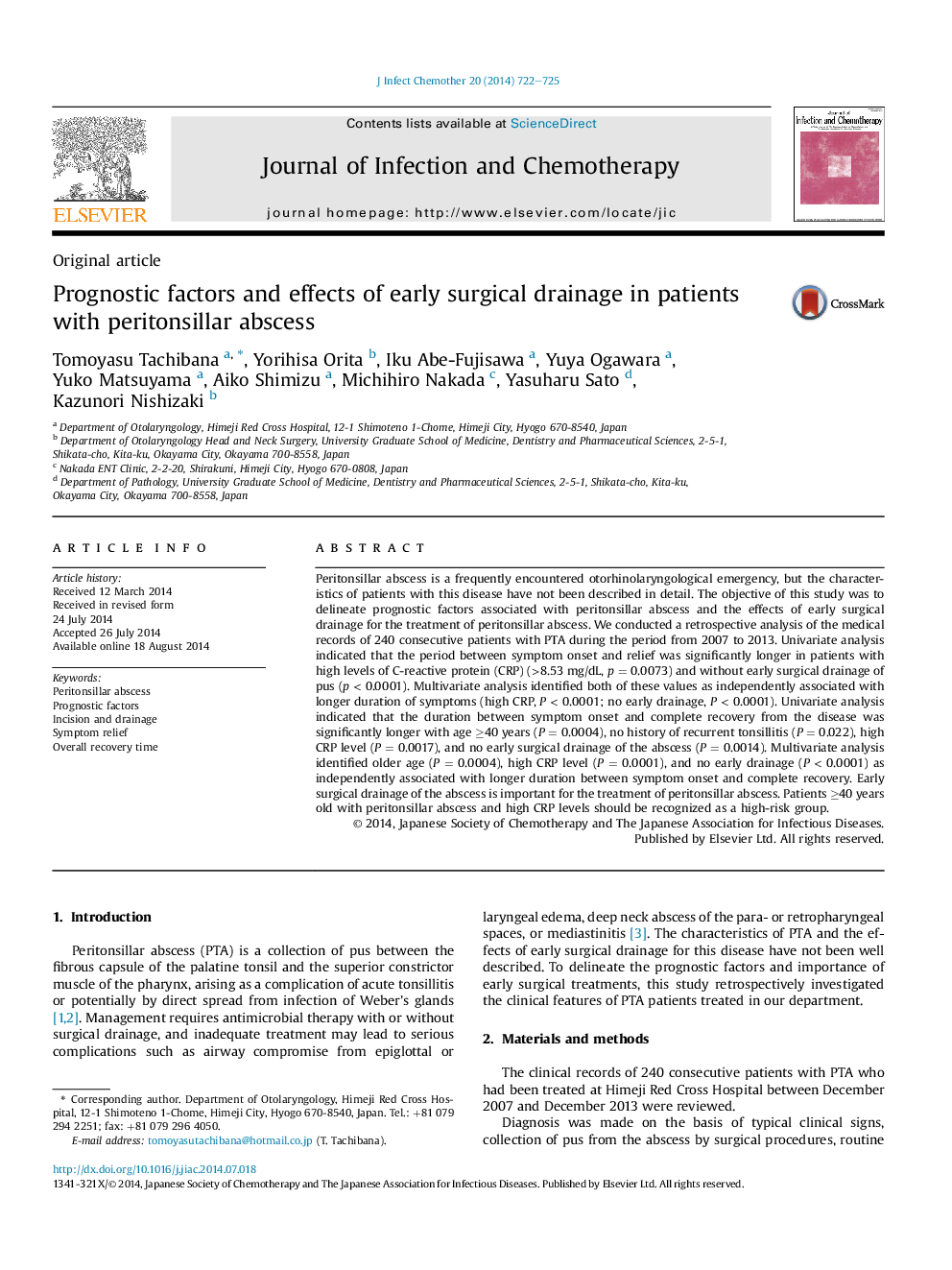| Article ID | Journal | Published Year | Pages | File Type |
|---|---|---|---|---|
| 6123631 | Journal of Infection and Chemotherapy | 2014 | 4 Pages |
Abstract
Peritonsillar abscess is a frequently encountered otorhinolaryngological emergency, but the characteristics of patients with this disease have not been described in detail. The objective of this study was to delineate prognostic factors associated with peritonsillar abscess and the effects of early surgical drainage for the treatment of peritonsillar abscess. We conducted a retrospective analysis of the medical records of 240 consecutive patients with PTA during the period from 2007 to 2013. Univariate analysis indicated that the period between symptom onset and relief was significantly longer in patients with high levels of C-reactive protein (CRP) (>8.53 mg/dL, p = 0.0073) and without early surgical drainage of pus (p < 0.0001). Multivariate analysis identified both of these values as independently associated with longer duration of symptoms (high CRP, P < 0.0001; no early drainage, P < 0.0001). Univariate analysis indicated that the duration between symptom onset and complete recovery from the disease was significantly longer with age â¥40 years (P = 0.0004), no history of recurrent tonsillitis (P = 0.022), high CRP level (P = 0.0017), and no early surgical drainage of the abscess (P = 0.0014). Multivariate analysis identified older age (P = 0.0004), high CRP level (P = 0.0001), and no early drainage (P < 0.0001) as independently associated with longer duration between symptom onset and complete recovery. Early surgical drainage of the abscess is important for the treatment of peritonsillar abscess. Patients â¥40 years old with peritonsillar abscess and high CRP levels should be recognized as a high-risk group.
Related Topics
Life Sciences
Immunology and Microbiology
Applied Microbiology and Biotechnology
Authors
Tomoyasu Tachibana, Yorihisa Orita, Iku Abe-Fujisawa, Yuya Ogawara, Yuko Matsuyama, Aiko Shimizu, Michihiro Nakada, Yasuharu Sato, Kazunori Nishizaki,
